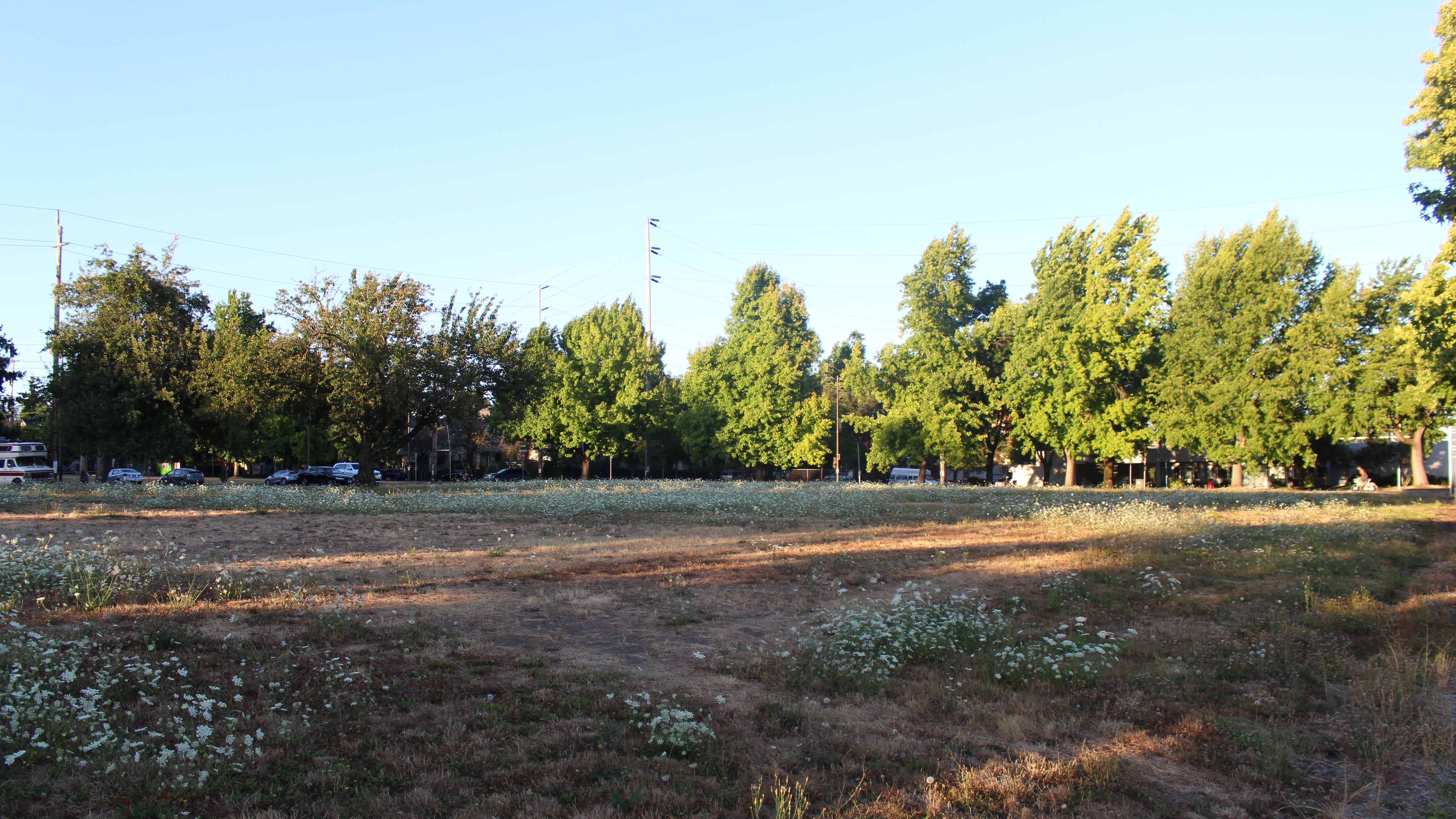The long-vacant lot near Legacy Emanuel Medical Center in North Portland took another step toward development last week after the board of commissioners at Prosper Portland, the city’s development agency, authorized a $10 million forgivable loan to help build apartments, houses and an office building on the site.
The property at the corner of North Williams Avenue and Russell Street was once the center of a thriving Black community. Prosper (then called the Portland Development Commission) condemned the so-called Hill Block and razed it in the mid-1970s to expand Emanuel Hospital. The land has sat undeveloped ever since.
The Williams & Russell Community Development Corporation plans to build 85 affordable rental apartments, 20 houses aimed at buyers making 60% to 120% of area median income, and a 30,000-square-foot Black Business Hub with offices and retail space.
Prosper’s loan is the latest infusion into the project. In 2022 the Portland Clean Energy Fund awarded $4.5 million for solar panels and heat pumps. Later that same year, Sens. Ron Wyden and Jeff Merkley announced that they had gotten $850,000 from a federal omnibus bill for Williams & Russell. The two senators got another $750,000 for the group this year, along with $2 million for Portland Community Reinvestment Initiatives Inc., a partner on the housing portion of the project.
In testimony before the Prosper vote, Williams and Russell president Bryson Davis pulled no punches in describing Prosper’s history with the historic piece of property and the Black community. The neighborhood was demolished in the 1970s and the legacy of redlining lingered into the 1990s, he said.
“This land has a long history that has harmed the Black community’s relationship with the city,” Davis said. “When we started this project, faith in Prosper was pretty low. I’m sure we’ve all heard of Profit Portland.”
But Prosper has allowed Williams & Russell to develop the project in its own way, Davis said.
“I know that Prosper and the Housing Bureau took a risk, turning this project over to members of the community, most of whom are not professional developers,” Davis said. “They have let our community decide what we want to build and how we want to build it.”
This year, Democrats have been chanting “We won’t go back,” Davis said.
“With this project, we make it clear that we aren’t going back to a time when the city didn’t share in the inherent risks of our community’s development,” Davis said. “We’re not going back to 1970, and we’re not going back to 1990. This project is the future of our community.”

